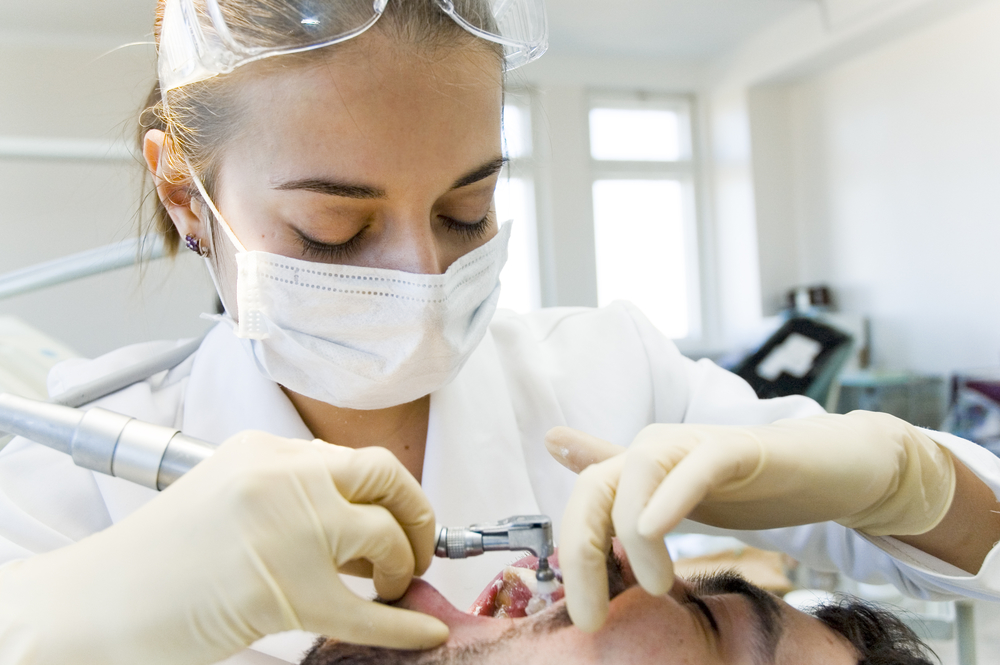 Sedation dentistry offers an alternative for patients who otherwise find dentistry to be very painful or distressing. With the help of sedation, a patient can feel relaxed while the dentist performs the necessary treatments or procedures to restore their teeth to a healthy state.
Sedation dentistry offers an alternative for patients who otherwise find dentistry to be very painful or distressing. With the help of sedation, a patient can feel relaxed while the dentist performs the necessary treatments or procedures to restore their teeth to a healthy state.
Dental patients seek sedation for a variety of reasons, but not every patient is a good candidate. Here are eight reasons why dental sedation may not be right for you.
You Don’t Have Fears or Anxiety Over Going To the Dentist
Dental sedation, whether laughing gas, oral or IV, is meant to help you relax and feel more at ease with your dental procedure. You don’t have to be diagnosed with anxiety or have a dental phobia to need some form of dental sedation. Light sedation is often recommended to help patients be more comfortable during a lengthy procedure. However, if you’re not afraid, anxious, or tense, you likely don’t need it for minor procedures or treatments.
You’re Not Old Enough
Often, children may need sedation for a significant procedure or treatment. Dental sedation involves the application of medication to help a patient be relaxed, calm, and feel less anxious. Sedation drugs can be administered in different forms including breathed in, pill form, or part of an intravenous line in the hand or arm.
In 2016, the American Academy of Pediatrics (AAP) and the American Academy of Pediatric Dentistry (AAPD) released a clinical report with updated guidelines for dentists and oral surgeons to follow when providing sedation dentistry or general anesthesia to children. Whether dental sedation is safe for your child depends on their previous medical history, their current medical needs, and many other factors. Talk with your child’s dentist or oral surgeon about the different types of sedation or anesthesia they recommend for your child before their appointment.
You’re Pregnant
Dental sedation is not recommended for pregnant women at nearly every stage. Laughing gas cannot be safely used in the first trimester, while oral and IV sedation are not recommended at any point. If you think you may be pregnant, be sure to tell your dentist before any dental sedation.
You Have Allergies To the Medication
Benzodiazepines are the most common medication used in oral and IV sedation., Patients with allergies to the common medicines may be able to use an alternative but they may not, depending on other underlying conditions. Share any allergies you have with your dentist before your appointment.
You’re Congested
Nitrous oxide is administered through a breathing mask, and you will simply breathe it in with oxygen for it to be administered. Because of the nature in which the sedation is administered, being unable to inhale correctly as a result of a stuffy nose or sinus issue means the gas can’t properly reach your system in the same way. Congestion can lead to the gas not having the same effect as clear sinuses.
You’re Taking Certain Medications
It’s essential that you tell your dentist about every medication you take. This includes prescribed medication, over-the-counter medication, vitamins, or herbal remedies. If you don’t, your dentist may prescribe oral sedation that won’t work or could have adverse side effects when mixed with your current medication. Certain medications cannot be combined with sedation, so being open and honest with your dentist is vital.
You Just Consumed Alcohol
Before having a procedure that involves sedation, do not consume any alcohol. Oral and IV sedation medication mixed with alcohol could cause complications like lowering your blood pressure or making it difficult for you to breathe. If you find yourself nervous about your upcoming procedure, talk to your dentist first. We may be able to prescribe something to calm your nerves before administering any sedation.
You Have Sleep Apnea
IV sedation is not recommended for patients with sleep apnea. Even if you haven’t been officially diagnosed with sleep apnea, this is still a concern if you believe you may have the condition. If you’re overweight and you snore, you need to let your dentist know as this can be an indication of sleep apnea.
To make sure you’re a good candidate for any form of dental sedation, it’s vital to share your full medical history with Hinsdale Dentistry. Only then can we make a qualified medical decision that’s safest for you and your overall health. To find out if you’re a good candidate for dental sedation, schedule a consultation with Hinsdale Dentistry today.